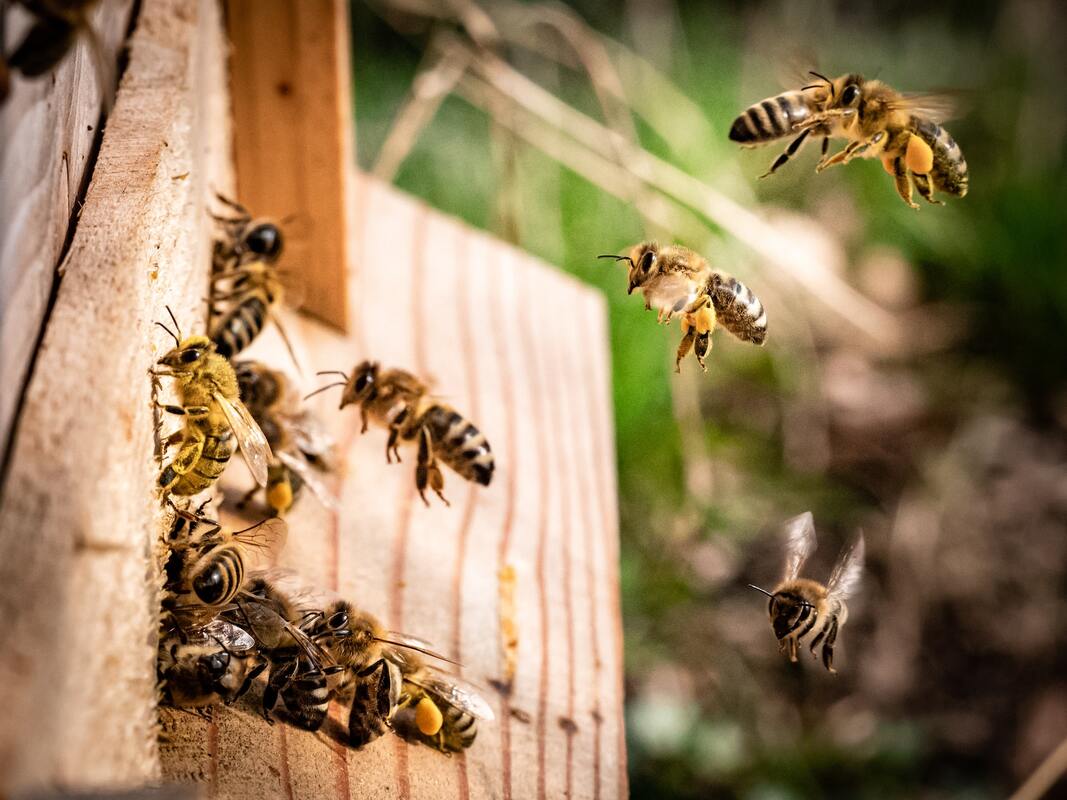Honeybees are an important part of our ecosystem, and there are many surprising facts about them. They are not native to North America, and there are three main types of honeybees in a colony: the queen, workers, and drones. Honeybees are crucial for pollinating a wide variety of fruits, vegetables, and flowers, and they also produce honey and beeswax. However, honeybee populations are threatened by Colony Collapse Disorder, climate change, and habitat loss. It’s important to protect honeybee populations through conservation efforts and sustainable beekeeping practices to ensure the health of our ecosystem.
10 Surprising Facts About Honeybees and Their Importance in Our Ecosystem
1. Honeybees are Not Native to North America
While honeybees are commonly associated with North America, they are actually not native to the continent. They were brought over by European settlers in the 17th century. This makes them an important part of our ecosystem, as they help to pollinate a wide variety of plants and crops.
2. There are Different Types of Honeybees
There are three main types of honeybees in a colony: the queen, workers, and drones. The queen is the largest bee in the colony and is responsible for laying eggs. Workers are female bees that gather food, build honeycombs, and take care of the larvae. Drones are male bees whose sole purpose is to mate with the queen.
3. Honeybees are Essential Pollinators
Honeybees are crucial for the pollination of many plants and crops. They are responsible for pollinating a wide variety of fruits, vegetables, and flowers, making them essential for our food supply. Without honeybees, many of the foods we eat would not be able to grow.
4. Honeybees Produce Honey and Beeswax
One of the most well-known facts about honeybees is their production of honey and beeswax. Honey is made from the nectar of flowers and is used as a food source for the bees. Beeswax is used to build honeycombs and is also harvested by humans for use in candles, soaps, and cosmetics.
5. Colony Collapse Disorder is a Major Threat
Colony Collapse Disorder (CCD) is a phenomenon where honeybee colonies inexplicably die off. This has become a major threat to honeybee populations worldwide. The exact cause of CCD is still unknown, but it is believed to be linked to a combination of factors including pesticides, parasites, and habitat loss.
6. Honeybees Have a Complex Communication System
Honeybees have a sophisticated communication system that allows them to convey important information to other members of the colony. They use a combination of dance movements, pheromones, and sound to communicate the location of food sources, potential threats, and other important information.
7. Honeybees Play a Role in Medicine
Aside from their role in pollination and honey production, honeybees also play a role in medicine. The venom from honeybees has been used to treat various ailments, including arthritis and multiple sclerosis. Additionally, honey has been used as a natural remedy for a variety of health issues.
8. Honeybees are Impacted by Climate Change
Climate change has had a significant impact on honeybee populations. Changes in temperature and weather patterns can affect the availability of food sources and disrupt the bees’ natural behaviors. Additionally, extreme weather events can destroy habitats and displace colonies.
9. Honeybees Have a Short Lifespan
The lifespan of a honeybee varies depending on its role in the colony. Drones typically live for around 8 weeks, while workers live for 6 weeks. The queen bee, depending on her ability to mate and lay eggs, can live for several years.
10. The Importance of Protecting Honeybee Populations
Given their vital role in pollination and food production, it is crucial to protect honeybee populations. Efforts to conserve habitats, reduce pesticide use, and support sustainable beekeeping practices are essential for safeguarding these important pollinators and ensuring the health of our ecosystem.
In conclusion, honeybees are fascinating creatures that play a crucial role in our ecosystem. From their important role as pollinators to their production of honey and beeswax, honeybees are essential for our food supply and the health of the environment. It’s important to raise awareness about the threats facing honeybee populations and take action to protect these important insects.
